How young people in Dnipro provide humanitarian aid
While numerous people have left the city of Dnipro because of the war coming closer, hundreds of thousands are finding refuge here – and organize humanitarian aid.
A place of escape and refuge at the same time: More than 200,000 people from the occupied territories have found shelter in Dnipro in the past few weeks. However, because the armaments industry city is also repeatedly the target of rocket attacks, and the front is only around 100 kilometers away in the south and 200 kilometers in the east, numerous people have made their way west from here.
A theater as a distribution center
In the midst of this chaotic situation, a group of young people keeps a cool head. The former theater now serves as an aid center. The Mol Centr Dnipro youth center had its rooms here until the beginning of the Russian offensive, which it now uses for coordination. The activists have converted the foyer into a clothing store. Grocery boxes are stacked in the entrance area. An underground connecting wing serves as an air raid shelter. Food is stored in offices. Space is getting tight in another connecting wing – so many finished boxes are lined up here. In the coming hours they should go to the addressees. But it rarely gets empty here. “All the boxes go out in one day,” says Diana Spichak. The 17-year-old is one of the many young volunteers here. In the video, she guides through the premises.

22,000 households are on the list of volunteers at the youth center, which is part of the state-supported network of aid organizations, SpivDiia (спів дія). “That’s 33,000 people,” Spichak explains. This makes the location in Dnipro the largest in the country.
IDPs lend a hand
Spichak herself fled from Kharkiv to Dnipro with her family. Until the start of the major Russian offensive, she lived in the Saltivka district, which had meanwhile been particularly hard hit by the war. Like her, it is mainly young people and internally displaced persons who are involved in the youth center. Spichak prefers to work with her mother at the entrance on the registration:
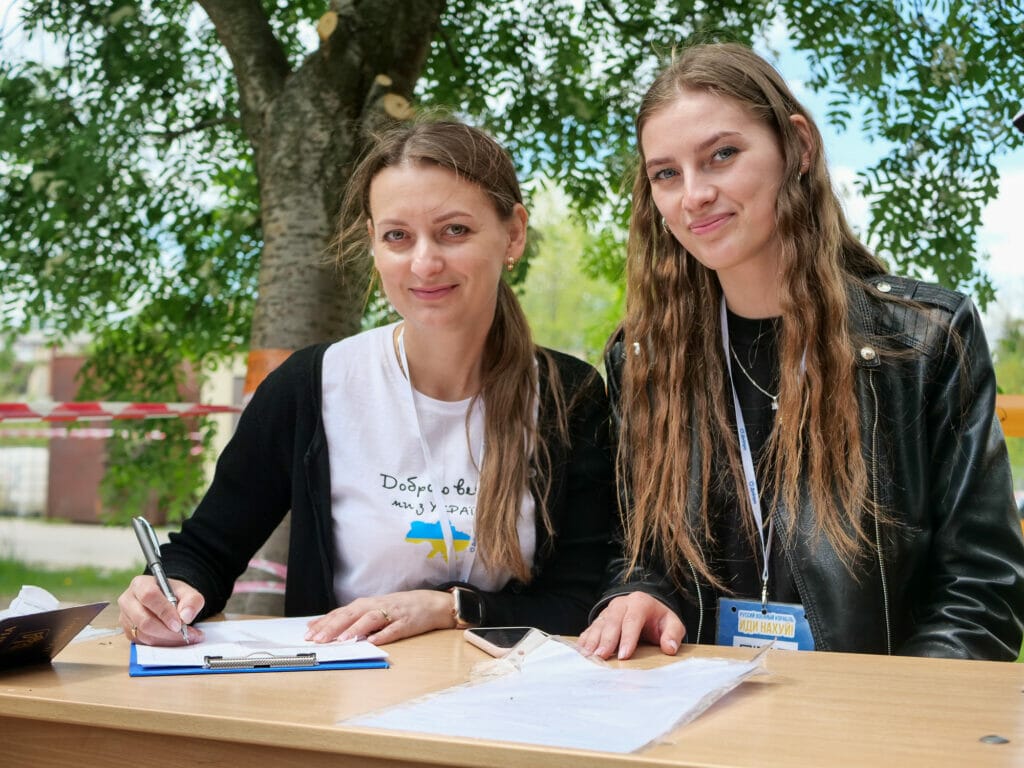
Here I can forget about the war, I don’t read news about my city. If you are here, you can help and do something; not just sitting on the sofa in the apartment.
With international support, the youngsters have built up considerable logistics here. Each of the packages has its own number. They are packed according to the individual requirement lists. “Then we’ll call and say they can come,” says helper Tatiana, whose task are the phone calls: “If someone lives in another city and can’t come, we’ll also deliver.” Volunteers are available for this, and it’s also possible to send them by post.
Comprehensive help
Meanwhile, the youth center is not the only one that looks after people in Dnipro. “Kust” accommodates and cares for around 350 people in four accommodations, including a hotel. “We provide food, clothing, medicine, hygiene, psychological and legal advice,” lists coordinator Iryna Bondarevska. The organization, which actually sees itself as a movement for cultural events and festivals in Dnipro, had nothing to do with humanitarian aid until the start of the large-scale Russian offensive. But since the third day of the war, February 26, around 100 people from a wide variety of professions have been helping the internally displaced people in the city.
The coordinator admits that this changeover was not easy. “But we want to and can help people,” emphasizes the 24-year-old. Starting from scratch, they developed a system for accommodating people, sorted clothes and food, and got notebooks and telephones. “We also have a kind of call center through which people can get help. We mediate to the right positions,” explains Bondaresvka.
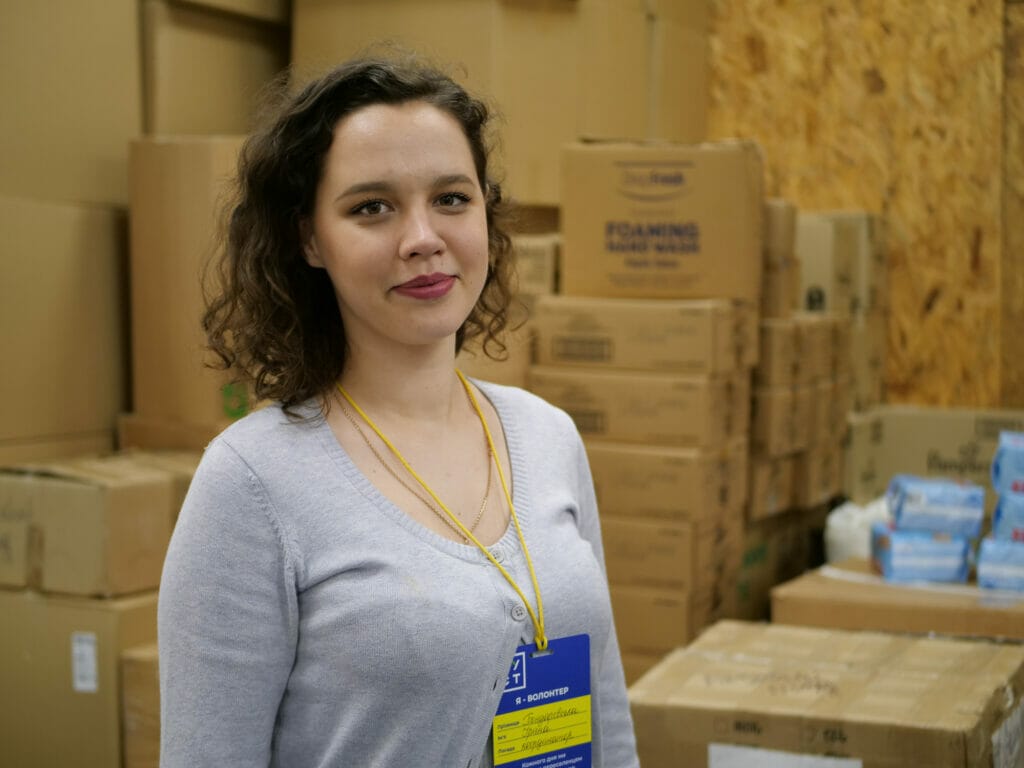
Challenge psychological support
Because it is also clear that when a city of over a million people grows by around 200,000 people within a few days, space will quickly become tight. Most still lived in emergency shelters such as halls, empty buildings or hotels. Newcomers in particular are often in poor mental health in the first few days. “Ukrainians think that a psychologist is not that important,” says Bondaresvka. Help at this level is therefore not always easy. The professionals therefore try to approach them as friends and the entire center is geared towards a family atmosphere.
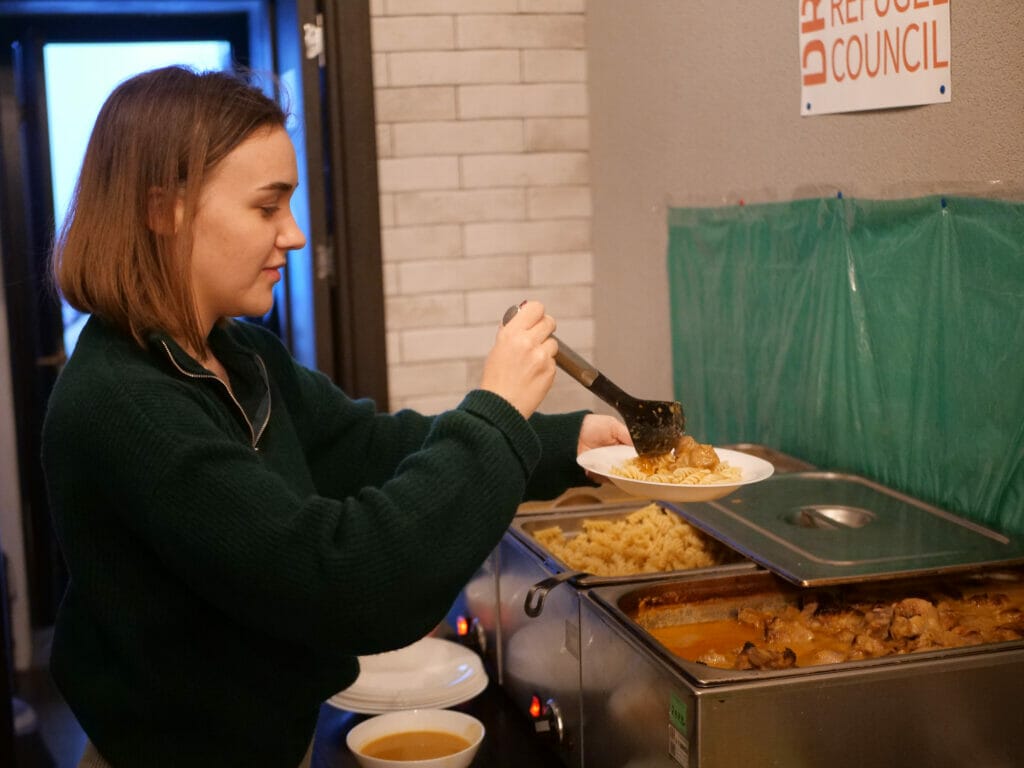
Marriage after the escape
Polina Zoicseva and Sergey Len also experienced this with their one-year-old daughter Emilia. Before fleeing Rubishne (Luhansk Oblast) in mid-March, they hid in the basement. “We saw bombs and fires and put it out with snow,” says 23-year-old Zoicseva. After a two-day stay in Kramatorsk, the buses finally took them to Dnipro. The family stayed there for two weeks and has been living in a hotel ever since.
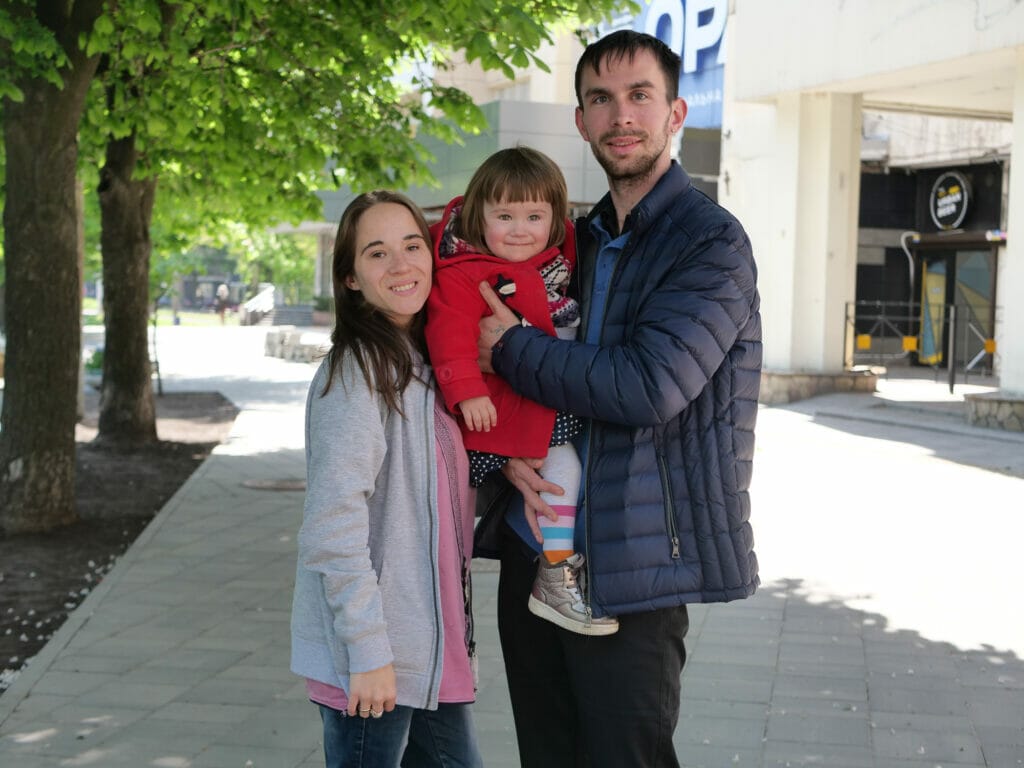
Despite the traumatic experiences, the family also experienced a beautiful moment during this difficult time. When the two parents found out that internally displaced persons were also allowed to marry, they said yes on April 30th. “We invited a lot of people,” Len says happily about the day; even if they didn’t really know most of the guests. Because Kust helped organize the celebration and numerous internally displaced persons congratulated the couple. “We’re really grateful for that,” he says, smiling.
Only when it comes to the question of the future, the two do not seem to be in complete agreement. “I feel good here,” Len says while holding the child on his lap. He no longer wanted to go back to Rubishne. Zoicseva, on the other hand, wipes her now wet eyes and looks up at the ceiling. “I miss my home,” she says. Especially since she is concerned about her child’s future and the family has financial difficulties to overcome.
A “safe” city?
Meanwhile, many interlocutors describe the situation in Dnipro as calm, they consider their city safe. Rockets landed near the city center just a few days before the visit. “We get used to the war and remain calm when the siren sounds,” says Kust coordinator Bondaresvka. When asked about security in the city, 17-year-old Diana Spichak grins. “Just” an impact? “It’s like flowers,” she says, “in Kharkiv we had 20 or 30 in just one day.”

But she doesn’t feel good in this situation, she admits. Just the fact that she can no longer go to university and has distance learning again after the pandemic… “Something here,” she says, pointing to her heart, “really hurts a lot. Because it’s our city.” She doesn’t yet know what it will look like in the future. But the Ukrainians would surely rebuild them. “Our victory is coming,” she says optimistically, despite the dramatic situation in her country.
Vorgeschlagene Beiträge
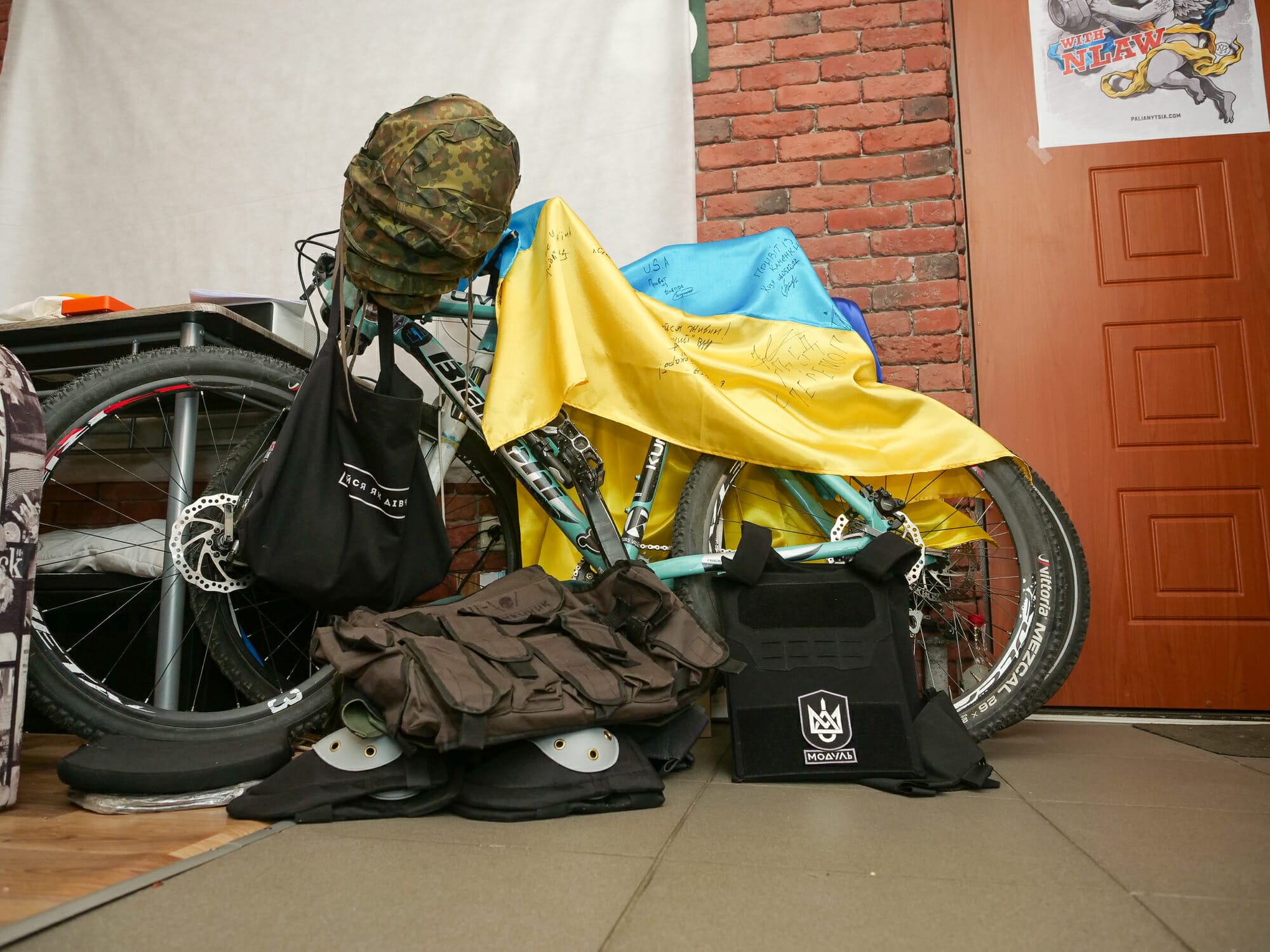
Module Club Dnipro: DJs at the front
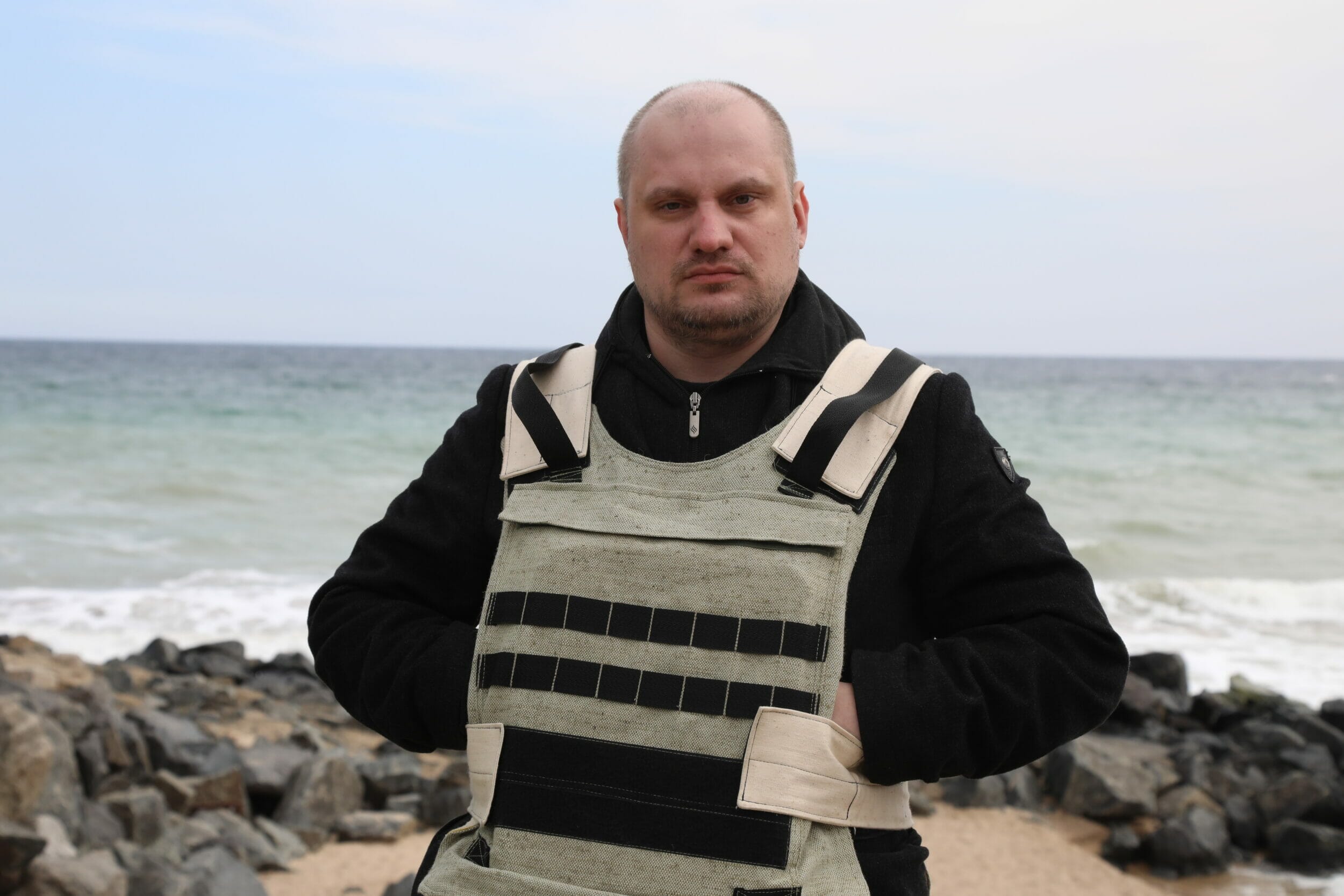
Sergey Panashchuk: Reluctant war reporter from Odesa

Federal Admission Program Afghanistan before the end: Last chance for endangered Afghans
[mc4wp_form id=239488]

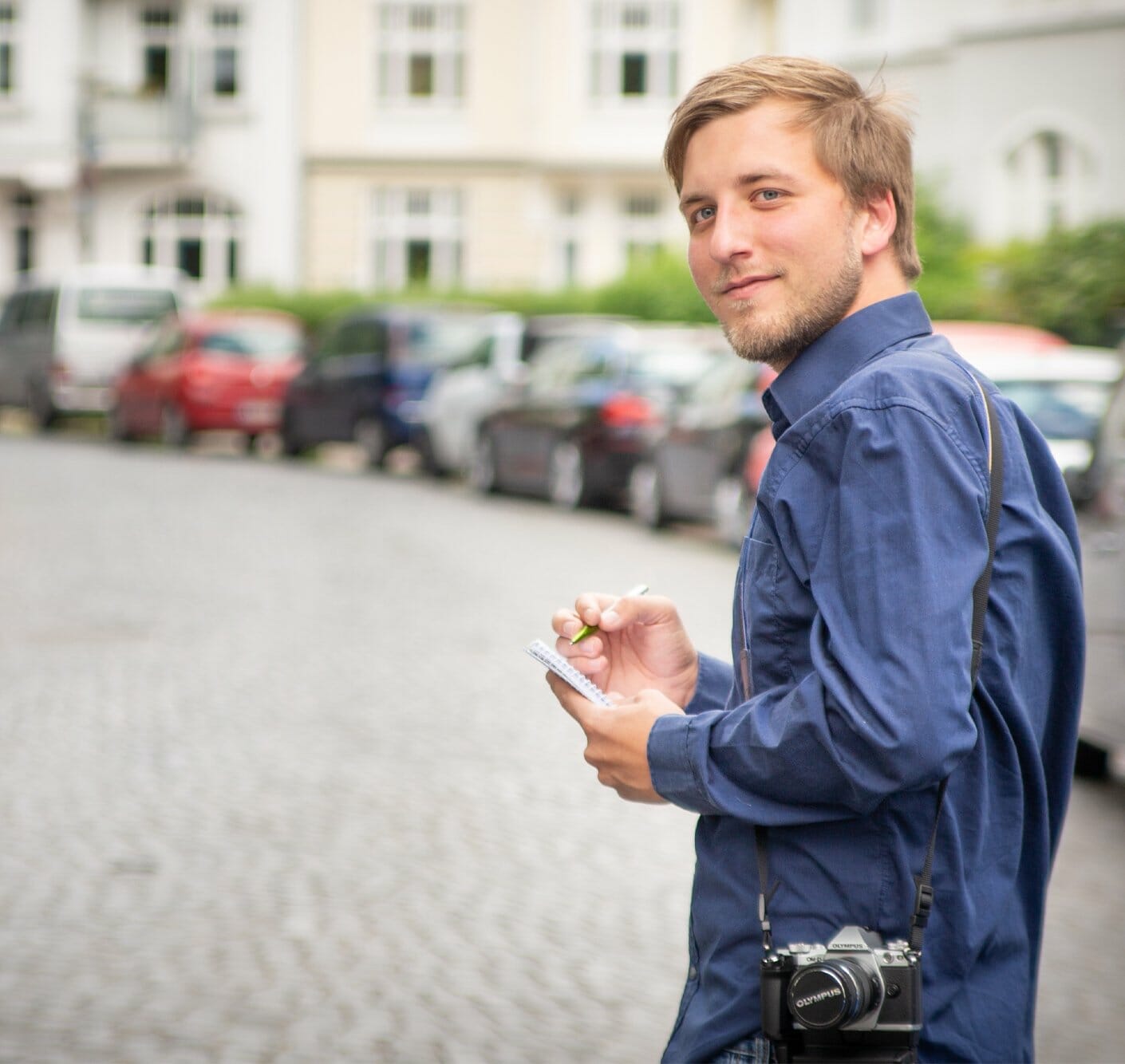
Leave a Reply
You must be logged in to post a comment.